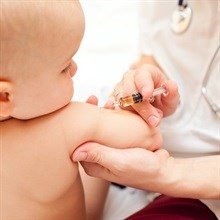
Top stories






More news


ESG & Sustainability
Redisa calls on govt to fix South Africa’s “broken” waste management system



























There is no cure for polio; doctors can only treat the symptoms while the infection runs its course. In 2013, polio affected 416 people down from 350,000 cases in 1988.
"Although the last case of polio was reported in South Africa in 1989, other parts of the world still have outbreaks. As long as there are still cases of polio anywhere in the world, this highly contagious disease can easily be imported and spread within South Africa, if all children have not been vaccinated," says Mark Payne, CEO of the Independent Community Pharmacy Association (ICPA).
Poliovirus is often transmitted from person-to-person through faecal matter. People living in areas with limited access to running water or flush toilets often get the virus from drinking water contaminated by human waste that contains the virus. In addition, the virus can be spread by contaminated food or water or direct contact with another infected person. Pregnant women, people with weakened immune systems, such as HIV+ people, and young children are the most susceptible to the virus.
It is estimated that 95-99% of infected polio patients are asymptomatic. In the 5% of polio cases in which patients do experience symptoms, they can range from mild to severe and can include anything from tiredness, headaches and fever, to abnormal reflexes, problems swallowing and/or breathing, muscle spasms and sudden paralysis in extreme cases.
According to the ICPA, the best way to prevent polio is to get vaccinated. "An effective vaccine is available against polio and it is highly recommended that you visit your local independent pharmacy and speak to your pharmacist about the polio vaccine if you are uncertain as to whether or not your children are fully vaccinated against this preventable disease," concludes Payne.